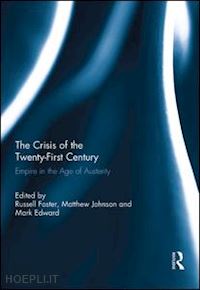1. Introduction: Between these two kinds of death Russell Foster 2. Building an empire or not? Athenian imperialism and the United States in the twenty-first century Alexandros Koutsoukis 3. On empire and strategy: a reply to Alexandros Koutsoukis Constantinos Koliopoulos 4. East, West, Rome’s best? The imperial turn Adrian Campbell 5. The empire never ended: a response to Adrian Campbell Neville Morley 6. The new pirate wars: the world market as imperial formation Amedeo Policante 7. Piracy and the international rule of law: reply to Amedeo Policante Eliga H. Gould 8. ‘…territorial acquisitions are among the landmarks of our history’: the buying and leasing of imperial territory Dominic Alessio 9. ‘ "… territorial acquisitions are among the landmarks of our history": the buying and leasing of imperial territory’: a reply to Dominic Alessio Simon Philpott 10. From post-imperial Britain to post-British imperialism Callum McCormick 11. A comment on British imperial decline and the conditions of emergence for Scottish nationalism: reply to Callum McCormick Neil Davidson Essays 12. Return of the Maxim Gun? Technology and empire in an age of austerity Michael A. Reynolds 13. The English School and the concept of ‘empire’: theoretical and practical/political implications Yannis A. Stivachtis 14. Relinquishing and governing the volatile: the many Afghanistans and critical research agendas of NATO’s governance Bojan Savic Symposium on the Falkland Islands Dispute15. The Falkland/Malvinas dispute: a contemporary battle between history and memory Christopher J. Hewer 16. Malvinas: politics, territory and internationalism Ronaldo Munck 17. A geopolitical perspective on Argentina’s Malvinas/Falkland claims David J. Keeling 18. Consolidate! Britain, the Falkland Islands and wider the South Atlantic/Antarctic Klaus Dodds Book Review Symposiums 19. Making the Future: Occupations, Interventions, Empire and Resistance, By Noam Chomsky: Reviews and Reply Juliana Bidadanure, Jason Dittmer, Fred Dallmayr, Ben Coulson, Noam Chomsky 20. Rational Empires: Institutional Incentives and Imperial Expansion, By Leo Blanken: Reviews and Reply April R. Biccum, Frank C. Zagare, Russell Foster, Leo Blanken











